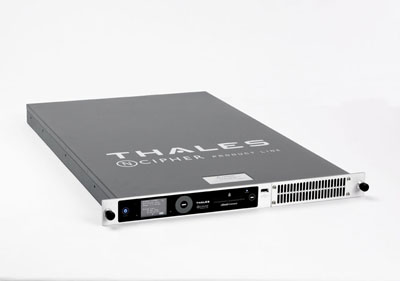Is it safe?
Three simple yet chilling words immortalized by the 1976 movie Marathon Man staring Laurence Olivier and Dustin Hoffman, in which Olivier tries to discover by very unpleasant means whether the location of his stolen diamonds has been exposed.

Marathon Man (1976)
Well had Sir Lawrence encrypted that information, there would have been no need for him to worry because he would have known that short of using a weak cypher or vulnerable algorithm or password, encrypted data has a very strong chance of remaining secret no matter what.
What is encryption and why should your business be using it?
Encryption is a means of algorithmically scrambling data so that it can only be read by someone with the required keys. Most commonly it protects our mobile and internet communications but it can also restrict access to the data at rest on our computers, in our data centers and in the public cloud. It protects our privacy and provides anonymity. And although encryption can’t stop data theft by any malicious actor who might try to steal it, it will certainly stop them from being able to access or read it.
Case in point had Sony Pictures Entertainment been encrypting their data in 2014. It would have been much harder for the perpetrators of the huge data theft against their corporate systems to extract any information from the information they stole. As it was, none of it was and much of it was leaked over the internet, including a lot of confidential business information and several unreleased movies.
Several years on and a string of other major data breaches later, figures published in the Ponemon Institute‘s 2016 Cloud Data Security study reveal persisting trends.
Research, conducted by the Ponemon Institute, surveyed 3,476 IT and IT security professionals in the United States, United Kingdom, Australia, Germany, France, Japan, Russian Federation, India and Brazil about the governance policies and security practices their organizations have in place to secure data in cloud environments.
On the importance of encrypting your data in the cloud. 72% of respondents said the ability to encrypt data was important and 86% said it would become even more important over the next two years. But where only 42% of respondents were actively using it to secure sensitive data and only 55% of those stated their organization had control of their keys.
Why is control of your encryption keys important?
While encryption may add a significant layer of control over access to your data, sharing your keys with third parties such as a service provider can still leave room for unwanted access. Whether it’s a disgruntled employee or government agency with legal powers, the end result might still be a serious breach of your privacy. Which is why if you have taken the trouble of encrypting your data, you really should also give serious consideration to your key management policy.
How secure is encryption today?
The relative strengths and weaknesses of the various algorithms available vary of course. However AES which is one of the more widely used algorithms today sports three different block ciphers AES-128, AES-192 and AES-256, each capable of encrypting and decrypting data in blocks of 128 bits using cryptographic keys of 128-bit, 192-bit and 256-bit lengths. And is currently considered uncrackable with any possible weaknesses deriving from errors made during it’s implementation in software.
What options are there for encrypting business data in the public cloud?
Disk level encryption is a means of securing virtual machines as well as their data, which allows the user to control their keys while protecting from disk theft, improper disk disposal and unauthorized access to the virtual container.
Software level encryption involves the data being encrypted before it is uploaded into cloud based storage. In this use case only the owner of the data has access to their keys. Tools for managing data in this manner include Truecrypt and 7Zip among others both of which support high standards of encryption such as AES256. And the type of cloud storage used is often cold or long term archival such as Azure Cold Blob Storage.
Filesystem level encryption consists of data being automatically encrypted in the cloud. The data is permanently encrypted until downloaded. Encryption, decryption and key management are transparent to end users. The data can be accessed while encrypted. Ownership of the required keys varies in this model but is often shared between the owner and provider. AWS S3 is an example of an object store with support for this kind of encryption.

Thales nShield Connect Harware Security Module.
Hardware level encryption involves the use of a third party Hardware Security Module (HSM) which provides dedicated and exclusive generation, handling and storage of encryption keys. In this scenario, only the owner has access to the required keys, here again the data can be accessed transparently while encrypted.
So, is it safe?
Well going back to Sir Laurence’s dilemma. There are no absolutes in computer security and probably never will be. But it seems clear that encrypting any data you want to control and managing the keys to it carefully, is sure to make it a much safer if not completely safe.
